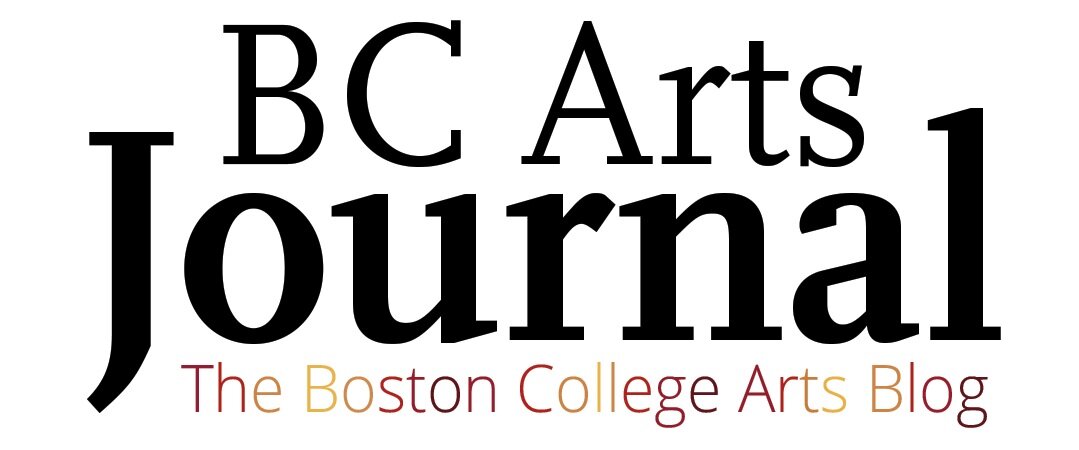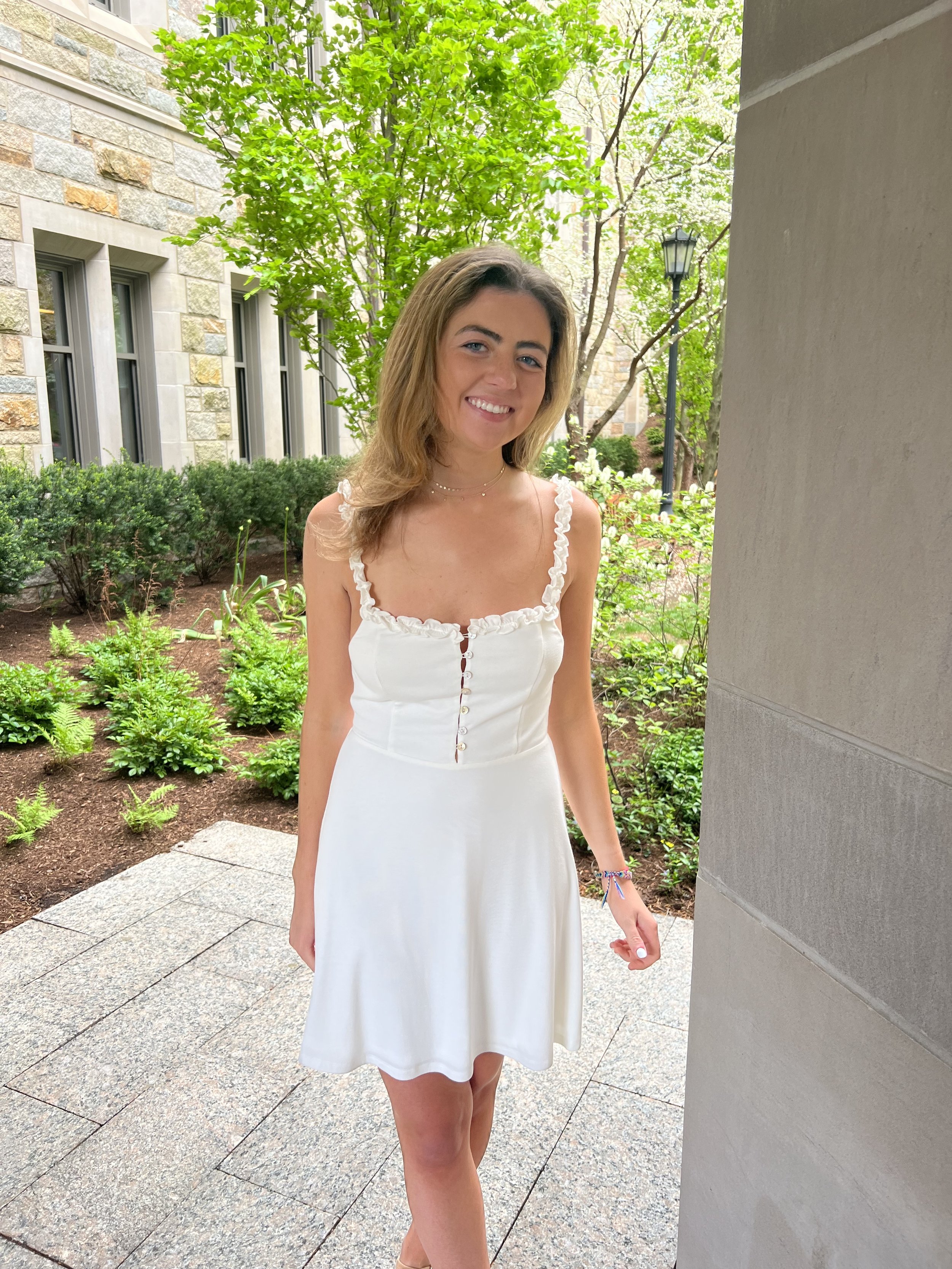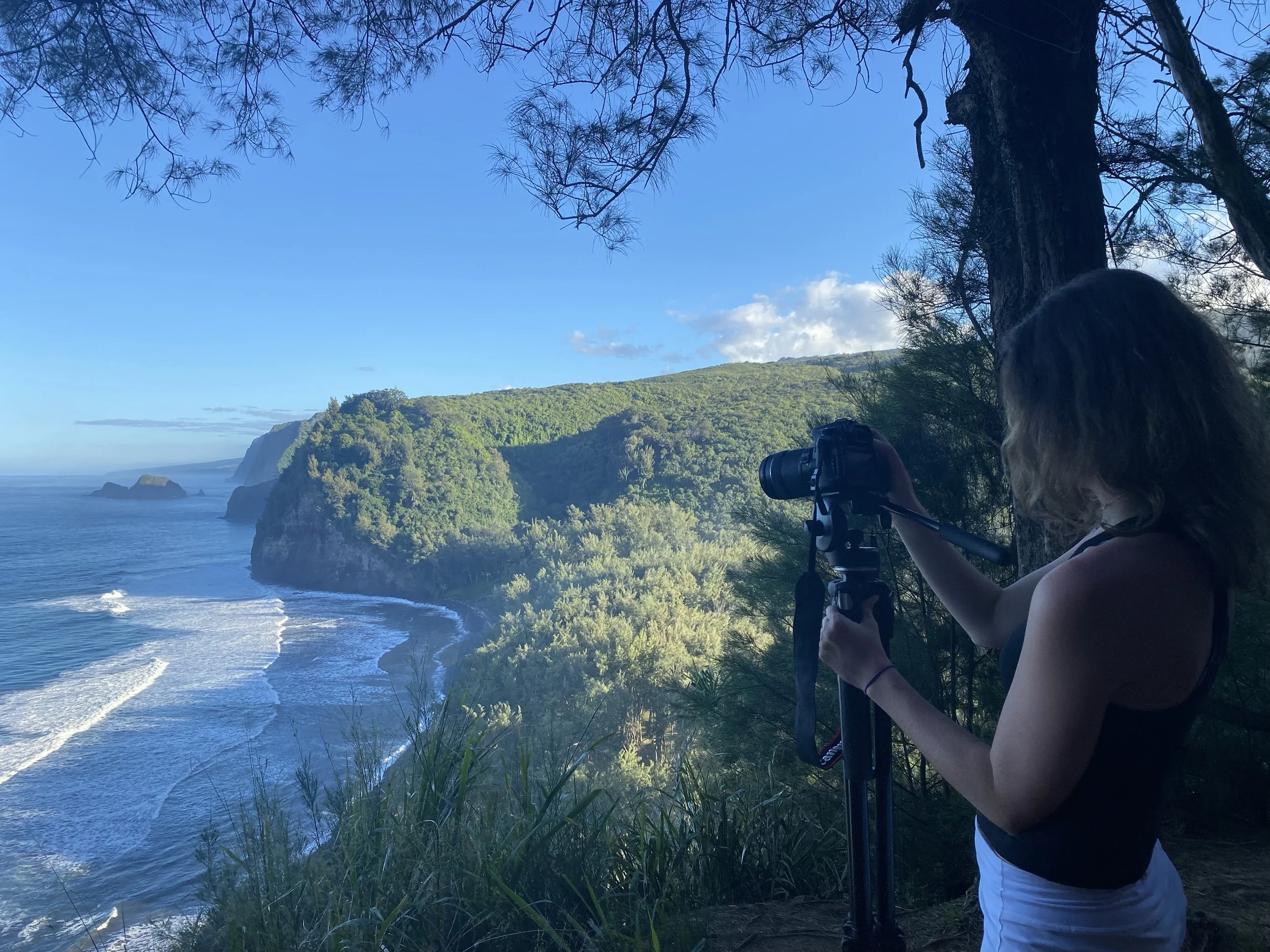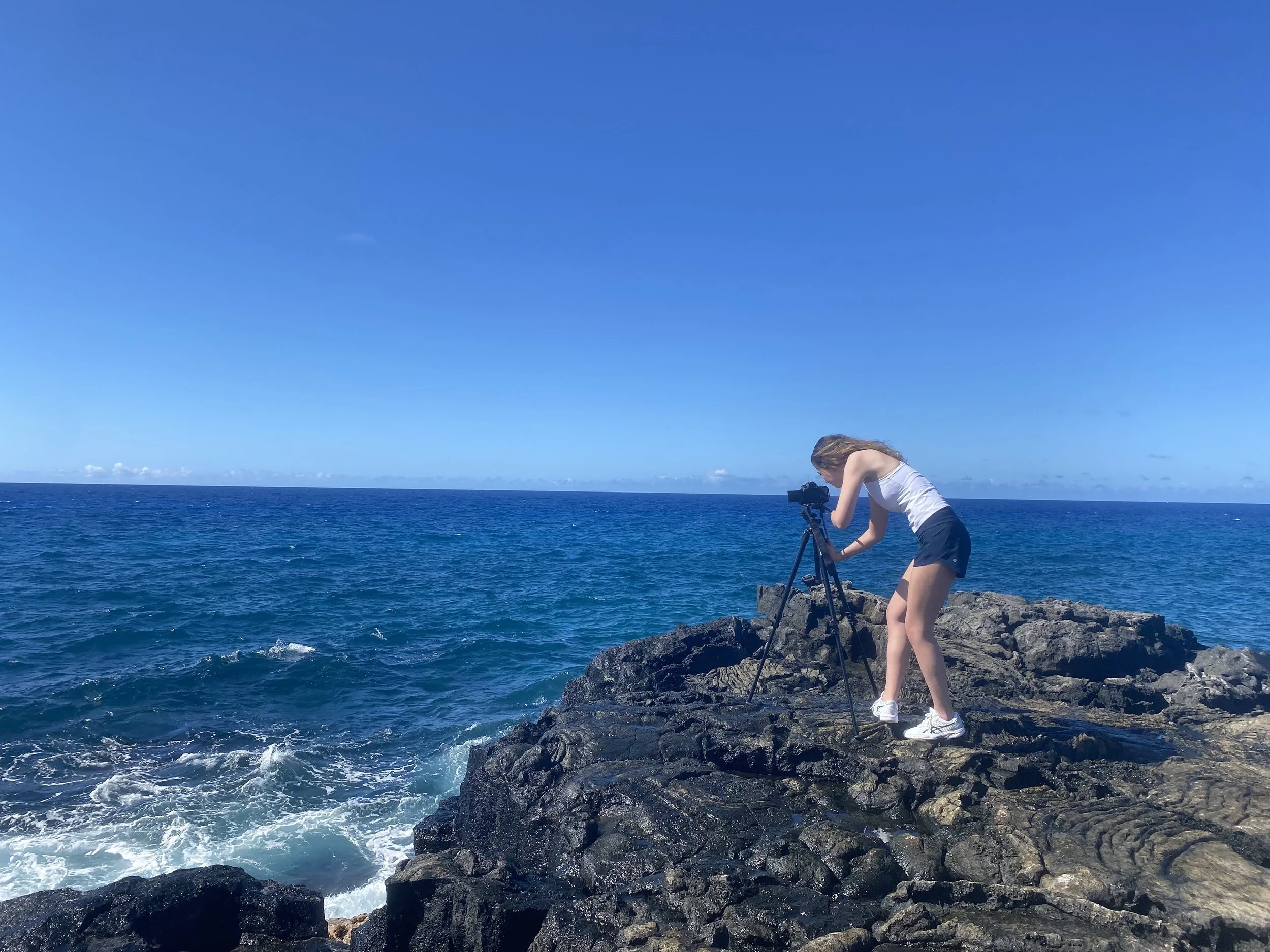2022 Arts Award: Lauren Burd
by Tyler Dean ‘25
___________________________________________________________________________________________________________________________
Lauren Burd ‘22
Major: Film Studies & Political Science
Tell me about yourself!
I came into BC as a Film major. My high school had a really big Broadcast Journalism and Film program, so I got really into it in high school, knew I wanted to do it in college, came in as a Film Studies major, and I also added on Political Science my freshman year. Throughout my time at BC, I took a bunch of Film Studies classes and I got really close with Professor Michalczyk who gave me a bunch of opportunities, and the biggest thing was his Salmanowitz Program where we got a grant to shoot a documentary in Hawaii. Outside of that, I was part of the Arts Council Student Coalition, which is students from different departments advocating for what they think their department needs. I came in doing Film, and I was a little shied away as a freshman, but through time I've gotten more involved in the department and grown in my confidence in being a Film Studies major. Now, I feel like I'm at the peak of being in the program, which is sad because I'm graduating in a couple weeks, but I feel like it took a bit of time for me.
What was the most rewarding part of your time in the Film Department?
My most significant experience with the Film Studies Program at BC has been doing the Salmanowitz Grant. Prof. Michalczyk, who's the Dean of the Film Studies Program, told me about it when I was a freshman. I've always thought it was so cool, but I didn't know who I would do it with, I didn't know if I wanted to do it by myself, I didn't have an idea, and I didn't have too much confidence as a freshman. Then sophomore year, [Megan Traudt and I] became friends, she became my partner in the project, and I just got so lucky meeting her because she was the best partner I could ask for. We really wanted to do the program, so we came up with an idea to focus on. The Salmanowitz Grant is basically a grant provided by the Film Studies Program, and it's basically if you have an idea to shed light on a social issue, you create a proposal; if the department likes it, they'll give you a grant to shoot it, so you can travel anywhere all over the world and they'll accommodate housing and travel, and Prof. Michalczyk was a great mentor along the way in helping make a better proposal and shoot better. When me and Megan were coming up with an idea, it was in the midst of COVID. We weren't sure where we could go, we didn't want to get stuck anywhere, so we looked for things in the U.S. we thought were interesting. So, worried about all the flooding in Oahu in Hawaii and all the environmental issues, we thought, "What's something interesting we could talk about?", and we decided to do tourism in hawaii. We went into it thinking that it would be how irresponsible tourism affects the environment, degrading the land that people go there to see, and the fact that it's their biggest economic driver but also causes harm to the sea. It was an interesting thing that the State had to reconcile. We went, and it was such a great experience because we went in expecting just to talk about environmentalism and pollution and stuff like that, [but] we saw such a wider issue. We learned so much about how ever since Hawaii became a U.S. state, they became dependent on the mainland, and their economy is not diversified because it is just reliant on tourism from the U.S. and they import all their food. It also ties into homelessness because it is so expensive over there and rich people from the mainland are buying all these homes from Hawaii, and Native Hawaiins can't even live there. It was all encompassing to all these different issues, and it was super interesting for me and Megan to learn about. We were super excited to share that in our documentary, stuff that we didn't even know about that we're sure a lot of people don't know about.
You've talked about how Professor Michalczyk was instrumental in your Salmanowitz Project journey. Share a little more about your relationship with him and his mentorship.
Prof. Michalczyk was my professor for Courage to Know when I was a freshman my very first semester at BC and he was my advisor as well, so already I knew him super well. He's just been so supportive and encouraging for me because you know the Film Studies major is very small, so Prof. Michalczyk knows us very well. I always felt like he was always pushing me to go out of my comfort zone and go after these grants and to pursue filming on campus. I really stayed in close contact with him these past four years, and we got close after the whole Salmanowitz Project. This past semester, he asked me to TA his Courage to Know class and that was a huge full-circle moment that was super special for me. He's definitely been a huge mentor to me especially because he focuses on documentaries himself, so getting his advice has been so valuable.
It's always interesting to hear how the Arts and Social Justice can converse. Are there any ways in particular that you feel like film was a good medium to explore this issue?
I think film is a great medium for Social Justice because it has the ability to evoke a special type of emotion in people that maybe reading an article or hearing it on the news maybe can't evoke. It's like a cinematic depiction of things that can really drive home certain ideas and really give you a picture of what people are going through. Our favorite documentary is this film called Blackfish, and we just love it because it was so instrumental in bringing down SeaWorld and it’s super entertaining and so well done and factual that I feel like it really struck a chord with so many people. That's the power of what film can do, especially when done right.
You're also a Political Science major. What do you think the relationship between Political Science and Film is?
It's something that people have asked me before. It's funny because Megan and I are both Political Science and Film Studies majors, so we're one of the two. It's a rare combo, and it's funny that we know each other. I think what was so helpful about being a Political Science major and Film major [is that] you're trying to blend two worlds. With Film Studies, you're trying to bring in creativity, storytelling, how to make things visually appealing, draw in an audience—capture people's attention. Then, Political Science can ground you in a way. You have to be analytical, you have to be objective, you have to look at things from different lenses and be factual in what you're doing, so I feel like Political Science was a very helpful grounding background for both [Megan and I] to have. When we were making a documentary where we wanted all the facts to be right, we were not depicting things in a way that isn't true. It helps us kind of show things in a wider lens.
Aside from the Grant, what have been some other memorable moments from your time in the Film Studies Program and in the Arts in general?
Within the past four years, I've written stuff for the Heights; I was a columnist for them, and that helped me with the whole Social Justice side of this project. I feel like I only really got involved with outside Film stuff this past year. I was part of Irish society; my mom and dad are Irish immigrants, so it was cool to be a part of that. It was kind of creative in its own right, coming up with ideas for that. The [Arts Council] Coalition too that I was a part of, I really enjoyed that because it was kind of the other side [of the arts on campus]. As much as I love filmmaking, I really like advocating as well for what our major needs, and it also kind of propelled me because I'm going to be going to Law school next year. It's kind of like being in entertainment from a different angle because I really enjoy the idea of advocating for artists who maybe can't advocate for themselves and protecting media.
What advice might you have for new artists at BC or people interested in Film?
Like I've mentioned in this interview a couple of times, it definitely did take me a little while to come out of my shell as a Film Studies major. I felt that it definitely took me a while to get more involved and more comfortable with my professors. I felt like as a freshman, I was scared to get involved. Like even for you {Tyler Dean}, you say you're involved with all this stuff, like that's awesome, and I definitely should have done that more when I was a freshman. I would say definitely reach out. Try your best. If you're interested in the Film Studies major, it can be super tough—or not even the major, just Film Studies, even classes in general. It can be super tough to even get into Film as a freshman because they're the most sought after classes, but I would say try to reach out to professors and show them that you really want to be involved. Even within the major like I said, it's a small major so I've gotten close with a few of my professors, and they've been super helpful in helping guide me and figure out what direction I was to go in post-grad. Like I was saying also, if you're interested in film and say you can't even get into a Film course, there's definitely clubs on campus that you can get involved in. I know a few people in BC TV that really enjoy it. I think Hollywood Eagles is a cool club, and they do short films and stuff like that. I feel like definitely just try to have confidence, get out of your shell, try new things, try new clubs, and don't be afraid to reach out to your professor or Prof. Michalczyk because he's always so excited to help anybody.
Thinking about the 2022 Arts Festival theme "New Nostalgia", what does that mean to you?
When it comes to something about New Nostalgia, I think about it personally, being a senior. It's kind of the idea of embracing your memories and enjoying all the good times you've had and past traditions, but also being ready to go out and make new memories and create new strides for yourself. I think right now as a senior, I'm very wrapped up in BC, thinking about my past four years, thinking about everything that I wish I could have done better, things I wish I could have accomplished, and I think I have to soon pivot my mindset and be like, "Ok, now, look to the future, what can I do? What can I do, especially in terms of the entertainment world? And what can I bring to that?" I think I'm a filmmaker, but I'm also interested in the other side of that, going to Law school and advocating for artists. I think I have a good understanding of the entertainment world and what it means to be a Film major, and I feel like I can bring that to what I'm doing after I graduate. I really just hope to be somebody that can help create a difference or help create a difference in the entertainment world like helping artists, whether it be [helping] musicians or actors get fair compensation for their work, protecting their work. That's how I kind of think of it.
Us at the Arts Journal are grateful for the opportunity to interview Lauren Burd and get to know more about her and the Arts On Campus.
Edited by: Sindey Amar 24’



